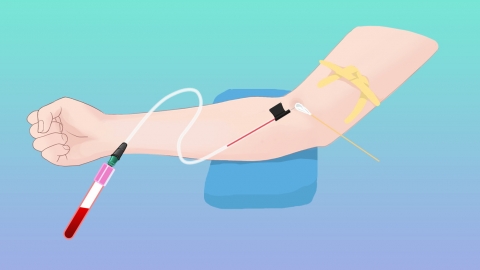What does drinking water before a physical examination affect?
Drinking water before a physical examination may generally affect the results of blood tests, abdominal ultrasound, urinalysis, gastrointestinal examinations, and blood glucose testing. The specific analysis is as follows:

1. Blood test results: Drinking large amounts of water can dilute the blood, potentially leading to lower levels of hemoglobin and hematocrit, which may interfere with the assessment of conditions such as anemia. It may also slightly reduce the measured values of lipids and blood glucose, resulting in test results that do not accurately reflect the body's true condition—this effect is particularly noticeable in tests requiring precise measurements.
2. Abdominal ultrasound: When undergoing ultrasound examinations of abdominal organs such as the liver, gallbladder, and pancreas, it is necessary to keep the gallbladder adequately filled. Moderate water intake can help fill the gallbladder; however, excessive drinking may cause gastric bloating, which can obscure posterior organs and impair the clarity of the ultrasound images, interfering with the doctor’s observation and assessment of organ structure and morphology.
3. Urinalysis results: Excessive water intake increases urine volume and dilutes the concentration of components such as urinary protein, glucose, and sediment. This may cause mildly abnormal indicators to appear normal, leading to false-negative results and hindering the early detection of urinary system diseases or metabolic disorders.
4. Gastrointestinal examinations: For procedures such as gastroscopy or colonoscopy, strict fasting and abstention from water are required beforehand to ensure the gastrointestinal tract is empty and clean. Drinking water at this time may leave fluid or food residue in the gastrointestinal tract, impairing visibility during the examination, increasing the risk of missing lesions, and reducing diagnostic accuracy.
5. Blood glucose test results: Fasting blood glucose testing requires at least 8 hours of fasting. Drinking water may stimulate insulin secretion or cause mild drops in blood glucose due to blood dilution. Especially in individuals whose glucose levels are near the borderline of normal range, this could result in readings lower than actual levels, affecting accurate assessment of glucose status.
Prior to a medical examination, it is important to understand the specific requirements of each test, including whether drinking water is permitted and the acceptable amount. If abnormal results are found, consult a physician to determine whether retesting is necessary.










